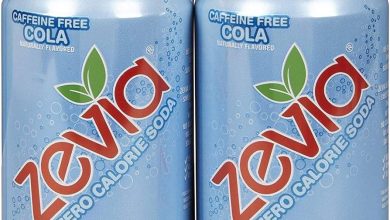Mung Bean Sprouts (Mature Seeds, Raw)
Mung bean sprouts are the young, edible seedlings of the mung bean, a legume that has been sprouted for consumption. Known for their crisp texture and mildly sweet flavor, these sprouts are commonly used in a variety of dishes, from salads to soups, and are a popular ingredient in Asian cuisine. Rich in essential nutrients, mung bean sprouts offer a range of health benefits, making them an excellent addition to a balanced diet.
Nutritional Information
| Nutrient | Amount per 100g |
|---|---|
| Energy | 30 kcal |
| Protein | 3.04 g |
| Fat | 0.18 g |
| Saturated Fats | 0.046 g |
| Carbohydrates | 5.94 g |
| Fiber | 1.8 g |
| Sugar | 4.13 g |
| Calcium | 13.0 mg |
| Iron | 0.91 mg |
| Magnesium | 21.0 mg |
| Phosphorus | 54.0 mg |
| Potassium | 149.0 mg |
| Sodium | 6.0 mg |
| Zinc | 0.41 mg |
| Copper | 0.164 mcg |
| Manganese | 0.188 mg |
| Selenium | 0.6 mcg |
| Vitamin C | 13.2 mg |
| Thiamin (Vitamin B1) | 0.084 mg |
| Riboflavin (Vitamin B2) | 0.124 mg |
| Niacin (Vitamin B3) | 0.749 mg |
| Vitamin B6 | 0.088 mg |
| Folate | 61.0 mcg |
| Vitamin B12 | 0.0 mcg |
| Vitamin A | 1.0 mcg |
| Vitamin E | 0.1 mg |
| Vitamin D2 | 0.0 mcg |
Allergen Information
Mung bean sprouts are naturally gluten-free and do not contain common allergens such as dairy, nuts, or soy. However, as with any sprouted product, it’s essential to ensure proper food safety practices are followed to avoid the growth of harmful bacteria.
Dietary Preferences
- Vegan: Mung bean sprouts are 100% plant-based, making them an ideal choice for vegans.
- Vegetarian: Mung bean sprouts fit seamlessly into vegetarian diets.
- Gluten-Free: Naturally free from gluten, mung bean sprouts are safe for those with gluten intolerance or celiac disease.
- Low Calorie: With only 30 kcal per 100g, they are a great option for those seeking to manage their calorie intake.
- High in Protein: Mung bean sprouts provide a plant-based source of protein, which is beneficial for muscle repair and growth.
Usage Tips
- Crisp Addition to Salads: Mung bean sprouts add a delightful crunch to fresh salads. Combine them with other leafy greens, such as spinach or arugula, for a nutrient-packed dish.
- Stir-Fries: Their mild flavor makes mung bean sprouts an excellent addition to stir-fries, absorbing the flavors of the sauce while maintaining their crisp texture.
- Soups and Stews: Add mung bean sprouts to soups and stews at the end of cooking to preserve their freshness and texture.
- Smoothies: Blend them into smoothies for an extra boost of vitamins and minerals without altering the flavor too much.
Health Benefits
Mung bean sprouts are rich in antioxidants and vital nutrients, including vitamin C, which supports immune function. The presence of magnesium and potassium helps promote heart health by regulating blood pressure. Additionally, they provide fiber, which aids in digestion and promotes a healthy gut. Their relatively low calorie count makes them a suitable ingredient for weight-conscious individuals, while their high protein content is beneficial for those on plant-based diets.
Conclusion
Mung bean sprouts, with their refreshing texture and nutrient-dense profile, offer a versatile and healthful addition to a variety of dishes. Whether you’re looking to increase your vegetable intake or add a new element to your meals, these sprouts are an excellent choice. Rich in vitamins, minerals, and fiber, they contribute to overall wellness while being low in calories and free from common allergens.










